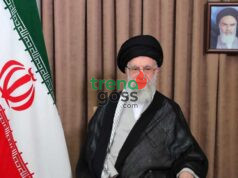The Trump administration has rolled out a detailed 21-point peace proposal for Gaza, aimed at ending the ongoing conflict, securing the release of Israeli hostages, and charting a roadmap for the territory’s future.
According to a source familiar with the plan, U.S. President Donald Trump expressed optimism, saying both sides are “very close” to a deal. This comes just days after Washington’s envoy suggested a “breakthrough” was possible following consultations with Arab nations at the United Nations.
Key Features of the Peace Plan
The plan mandates the release of all Israeli hostages—about 20 believed to be alive—within 48 hours of an agreement.
In exchange, Israel would commit to a phased withdrawal of its troops from Gaza.
The blueprint bars Hamas from any future role in Gaza’s governance, instead proposing two interim structures: an international oversight body and a Palestinian committee.
The proposal acknowledges the aspiration for a Palestinian state, though it leaves the timeline for transferring governance to the Palestinian Authority (PA) undefined.
Israel is barred from targeting Qatar, following previous strikes on Hamas leaders in Doha.
The plan rejects any forced displacement of Gaza residents, countering earlier remarks by Trump about relocating the population.
Reactions to the Plan
The peace plan has sparked sharp divisions within Israel’s political establishment. Prime Minister Benjamin Netanyahu vowed to continue the war until Hamas is destroyed, reiterating his rejection of a Palestinian state. At the UN General Assembly, Netanyahu likened granting Palestinians a state near Jerusalem to “giving al-Qaeda a state one mile from New York City after September 11.”
Far-right ministers, including National Security Minister Itamar Ben Gvir, strongly opposed the proposal, warning they would collapse the government if the war ends before Hamas is fully defeated.
However, Foreign Minister Gideon Saar voiced confidence in Netanyahu’s leadership, while opposition leader Yair Lapid pledged parliamentary support for any deal that secures the release of hostages and ends the war—providing Netanyahu with a crucial safety net despite coalition infighting.
Regional & Military Context
The plan was presented to leaders from Qatar, Saudi Arabia, Egypt, Turkey, and Pakistan at the UN. Meanwhile, Israeli forces continue their military operations, with three divisions extending control over Gaza City.
Netanyahu is scheduled to meet President Trump at the White House on Monday, a meeting expected to shape the next phase of negotiations.






